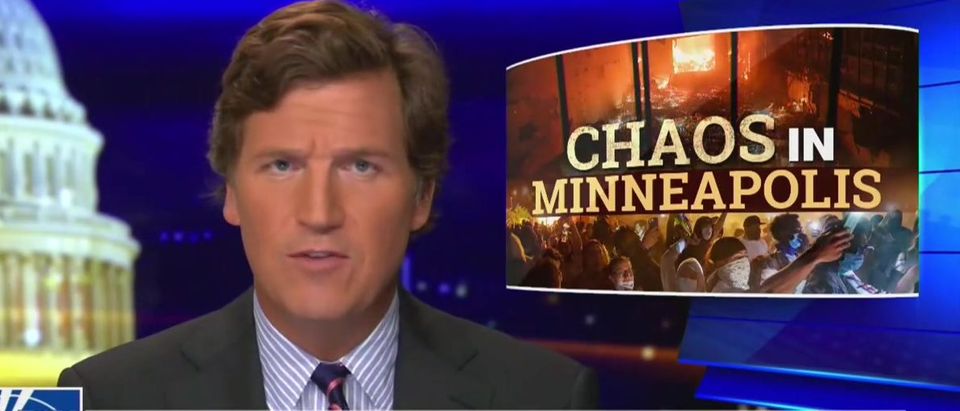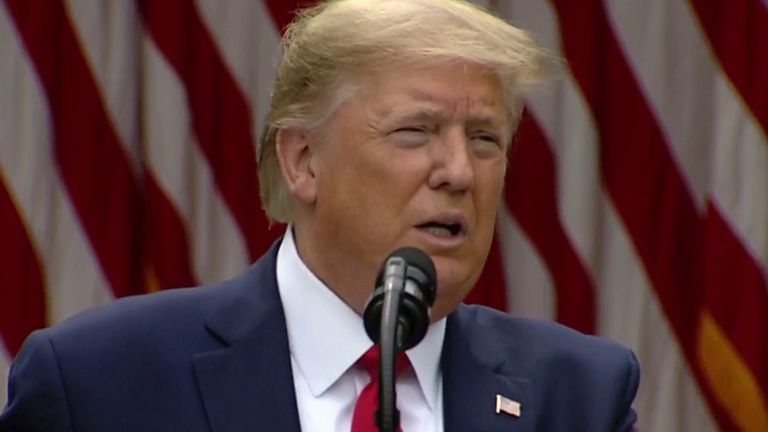Democrats Fear Prosperity
They’re terrified the American private sector will defeat them this fall.
The former Cabinet secretaries and Federal Reserve chairs in the Zoom boxes were confused, though some of the Republicans may have been newly relieved and some of the Democrats suddenly concerned.
“Everyone looked puzzled and thought I had misspoken,” Furman said in an interview. Instead of forecasting a prolonged Depression-level economic catastrophe, Furman laid out a detailed case for why the months preceding the November election could offer Trump the chance to brag — truthfully — about the most explosive monthly employment numbers and gross domestic product growth ever.
Since the Zoom call, Furman has been making the same case to anyone who will listen, especially the close-knit network of Democratic wonks who have traversed the Clinton and Obama administrations together, including top members of the Biden campaign.
Furman’s counterintuitive pitch has caused some Democrats, especially Obama alumni, around Washington to panic. “This is my big worry,” said a former Obama White House official who is still close to the former president. Asked about the level of concern among top party officials, he said, “It’s high — high, high, high, high.”
What Furman said really isn’t all that counterintuitive. There was no fundamental sickness afoot in the American economy before the virus hit; there was a decent possibility of a recession as part of the natural business cycle, but overall we were at full employment, corporate profits were healthy, personal savings were up, and the stock market was at record highs. If anything, the most prevalent threat to the economy was the structural deficiency of
America’s increasingly underperforming and obsolete education system at both the K-12 and college levels. Had COVID-19 not come along, you would likely have seen by now increasing calls for major reform by the business community tired of having to coddle and remediate unprepared younger workers.
But the shutdowns coming out of the COVID-19 scare have essentially created an artificial recession. A good analogy would be what you’d get if you took a fully inflated basketball and held it down in a swimming pool. Let that sucker go and it won’t just rise quickly to the surface but will explode out of the water. Furman thinks that’s what’s going to happen when the shutdowns end, and any objective understanding of economics would give him a better than 50-50 chance of being right. Additionally, that recovery has the chance of being a prolonged thing since the shutdowns have accelerated market changes that were already happening — from
homeschooling to
home-officing to
front-door delivery to
Zoom — that give businesses and families a chance to find more efficiency in time and financial costs, boosting productivity and creating lasting opportunities for growth.
All of which scares the bejesus out of the Democrats. Here was one:
One progressive Democratic operative pointed out that recent polling, taken during the nadir of the crisis, shows Joe Biden is struggling to best Trump on who is more trusted to handle the economy. “Trump beats Biden on the economy even right now!” he said. “This is going to be extremely difficult no matter what. It’s existential that we figure it out. In any of these economic scenarios Democrats are going to have to win the argument that our public health and economy are much worse off because of Donald Trump’s failure of leadership.”
Some of this is simply the reality of life as the opposition party. You’re always looking for some condition that provides you an opening to take power at the next election, and if that condition happens to be a poor economy, so be it.
But it’s a little different for Republicans. Typically speaking, the further left the Democrat is who manages to get elected president, the worse the economy will perform.
Because socialism doesn’t work. This is known to everyone but socialists. And the college and high school kids who have to parrot them in order to get a passing grade.
So Republicans don’t really have to root for a poor economy to sink a Democrat president. On balance, the poor economy is a given, unless, as was the case when Bill Clinton was president, there was a Republican majority in the legislative branch able to temper the worst impulses of a Democrat in the White House. This was not the case of the Republican majority in the House when Obama was president, and so we got a stagnant economy and an opioid epidemic in all the places our coastal elites couldn’t care less about.
But if you’re a Democrat, you actively root against the economy, because it’s a real threat to your quest for political power if the other side can prove again and again that their way works better than yours.
We know, because it was a
very poorly kept secret, that the Democrats were praying for COVID-19 to kill the American economy and create the conditions Furman is saying won’t persist through the fall. They did everything they could to stoke fear and keep people from working, spending, and investing at the beginning of this panic.
In the beginning, there was at least a patina of justification for all of this. Nobody knew how bad the virus was going to be, so nobody was truly in a position to push back against the economic shutdowns prescribed by the public health bureaucrats. When Imperial College London, employing
one of the all-time great academic con men, whose work was almost immediately debunked, put out a study projecting that 2.2 million Americans could be felled by the virus, the hook was set, and the Overton window moved so quickly that even Donald Trump, perhaps the greatest champion of America’s private sector ever to hold the office of the presidency, felt he had no choice but to recommend the shutdowns.
It’s clear now that it was a mistake, and a bad one, to have chosen that course. At the time, however, it would have taken a Herculean political effort to keep the economy open amid the media-driven hysteria and uncertainty the virus occasioned. One could argue that even if there had been no official shutdown the economy would still have tanked to a large extent simply from changes in consumer behavior arising from the panic.
And this is where the rubber of that Politico piece meets the road of blue-state governance.
You really can’t explain it any other way.
Not after that mythical curve got flattened. Persecuting barbers and fitness club owners and arresting surfers does nothing to promote public health. We already know that, even though the CDC and the other public health nerds can’t tell you from one day to the next what their judgment is on how far the virus can travel in midair, how long it lives on surfaces, and so on, being outside in the sun is awfully good for you if you want to avoid getting sick from COVID-19.
And yet these clowns are doing everything they can to ensure that people stay home.
It isn’t to keep people from getting sick. By now it’s obvious that staying home doesn’t keep you from being sick. More people got sick in the states with the strictest shutdowns than in the states that either never shut down or opened back up quickly. That was also true internationally.
The Democrat governors are the ones insisting on keeping restrictions in place long beyond what the data would suggest. They’re the ones insisting that everyone
wear a mask, more as a test of the subservience of the public than as a public health measure. Those masks are good for one thing, which is to
symbolize the fear people are supposed to feel as a result of the virus. And panicked people do not a robust economy make.
These governors are heaping idiotic restrictions on businesses attempting to open back up.
In Louisiana, for virtually no discernible reason Edwards decreed that restaurants could only reopen their seating areas at 25 percent capacity — including staff. As no restaurant could make a profit under such a stricture, many restaurants, particularly in New Orleans, which is governed by a mouth-breathing socialist caudillo of a mayor in LaToya Cantrell, have said, “No thanks; we’ll wait.” Others are open and flagrantly violating the 25 percent rule, because why pay obeisance to tyranny?
Which is an awful lot like the flu. But you aren’t supposed to compare this to the flu.
Look, we could go on and on here. But the point isn’t complicated; nor is it particularly arguable. Democrats are trying to keep the economy closed because it’s more important to beat Trump in November than for the country to succeed. You can call that bad faith, or you can call it economic treason — call it what you want. But don’t call it a conspiracy theory.
Don’t call it a conspiracy theory, because they admitted it to Politico earlier this week. One last quote from the piece:
The former Obama White House official said, “Even today when we are at over 20 million unemployed Trump gets high marks on the economy, so I can’t imagine what it looks like when things go in the other direction. I don’t think this is a challenge for the Biden campaign. This is the challenge for the Biden campaign. If they can’t figure this out they should all just go home.”











